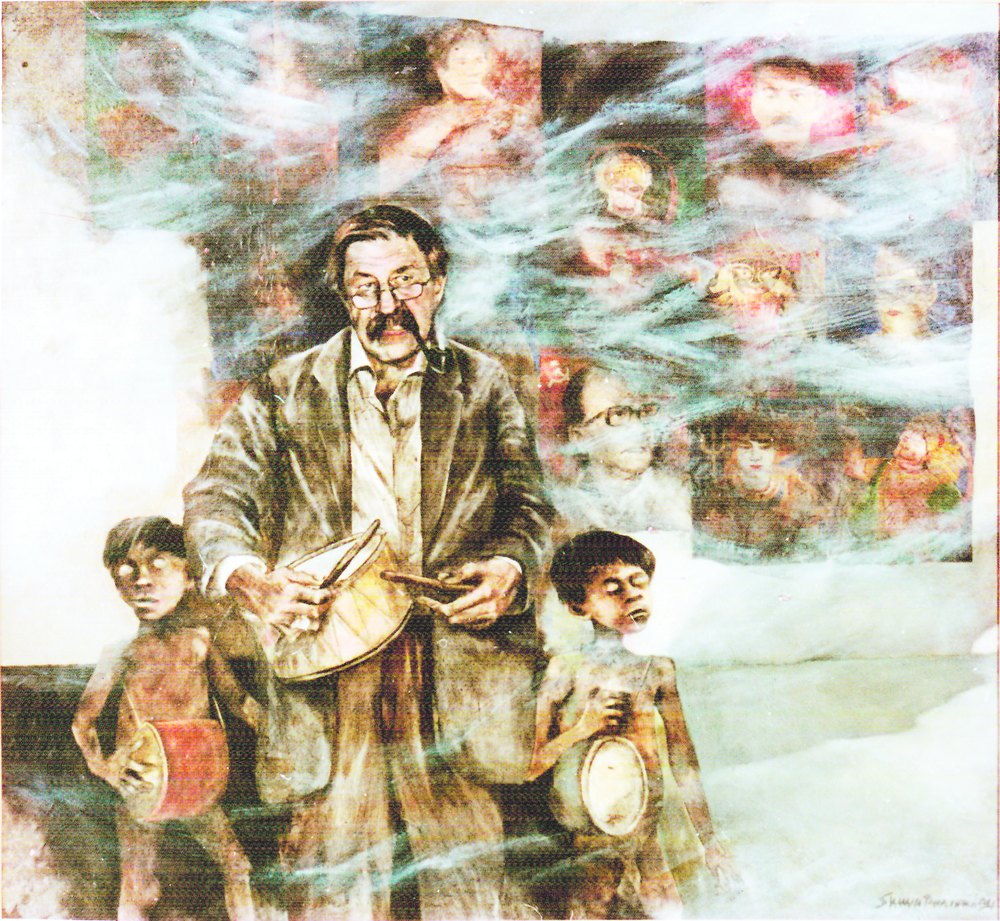
On his second visit to the city in 1986-87, Gunter Grass and his wife Ute used to travel by the crowded suburban trains from Baruipur where they had put up. One evening, he came to see our College of Visual Arts which was opposite our College Street house. It was then that he mentioned how being so far away from the city was a problem for him.
The first floor of (wife) Shipra's father's house in Lake Town was unoccupied and we arranged for them to stay there. That became his address for the next three months. We would meet over dinner. Daud Haider, the exiled Bangladeshi poet, used to take him around to see the underbelly of Calcutta, including the red-light areas. Grass would later call up the West German foreign minister Hans-Dietrich Ganscher and secure a 10-year visa for Daud!
Every day, he used to write a diary, standing. There was a huge wooden packing box which stood higher than the dinner table. He would write and sketch his day's experiences, which possibly went on to make his Show Your Tongue.
He stayed up all night to watch the Kali puja at home, queuing up with others to partake of prasad. The goddess Kali, with Her protruding tongue, is a key figure in his portrayal of Calcutta.
We went to Bishnupur in a rented Ambassador. The roads were full of potholes and the car broke down. But we finally did reach and he took a tour of the terracotta temples.
In January, he inaugurated my Arts Acre and we organised a poetry convention in his honour where 35 leading Bengali poets took part. He insisted that they recite in Bengali. He composed a poem instantly in German.
He was irritated with the hypocrisy in the city. He also had a problem with the statue of Netaji at the Shyambazar crossing. Why have they dressed him like a fascist hero? To Grass, he was much more than that. He had also recoiled on seeing the barbed wire fencing at Arts Acre. He just could not set foot inside, so raw must have been his War memories.
In 1988, Grass inaugurated my exhibition in Munich. He had never set foot before in Bavaria, of which Munich was the capital, as the state's president Franz Josef Strauss was a political rival of his friend Willy Brandt, the German chancellor. But he agreed to my request. Then he took us to his palatial home in Behlendorf, near Lubeck, about 70km from Hamburg. It had a huge garden and a studio.
In 2003, Shipra and I visited him, and spent a full day at his home. He showed us his studio where he had made etchings on zinc plates.
In 2005, when he next came to Calcutta he had already got the Nobel. He was staying at the Oberoi Grand. Buddhadeb Bhattacharjee, the chief minister, had translated a poem of his titled Open Wardrobe and wanted to meet him. So we took him to Nandan.
The last time we met was in 2012. He was ill and his wife and doctor were against our visit. But one phone call from me and he would hear none of that. Goutam (Ghose) was making a film on me and since Grass was so important to me, I wanted him to be part of the film. He even took the nebuliser off to speak on camera. We painted together. He used ink made of cod liver oil. It gave a sepia tone to the colour.
(With inputs from wife Shipra Bhattacharya)










